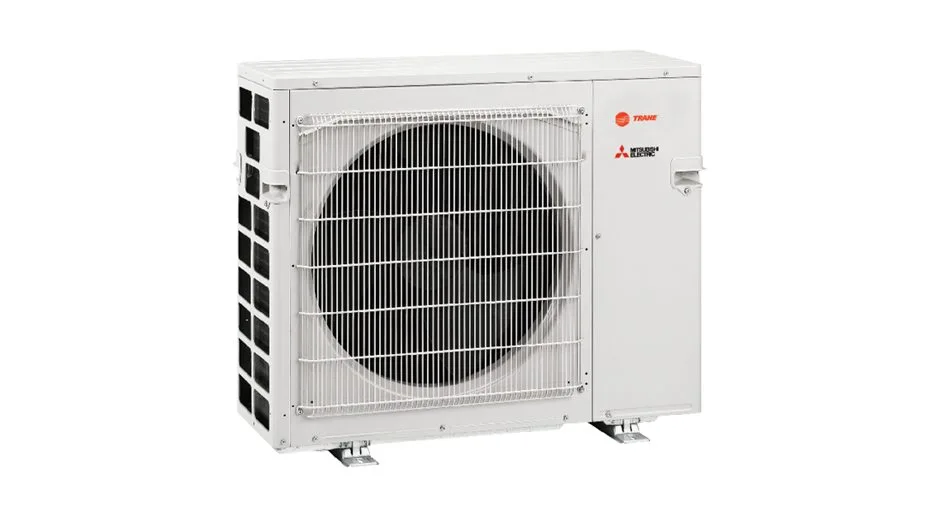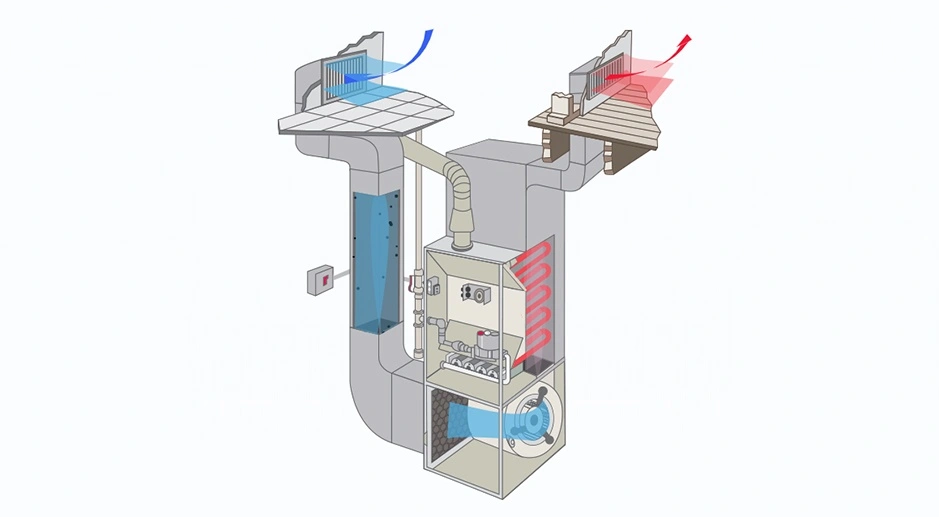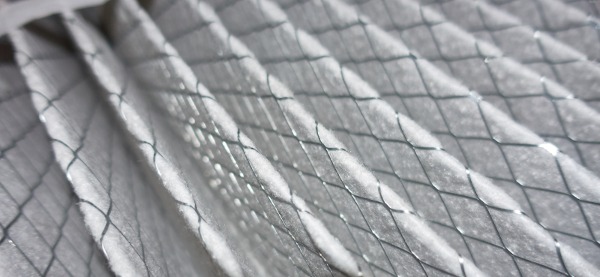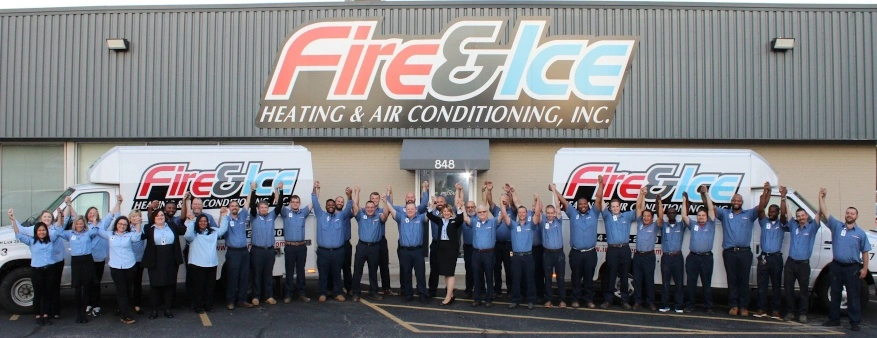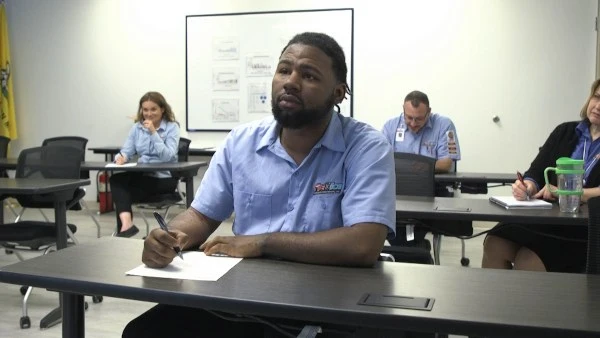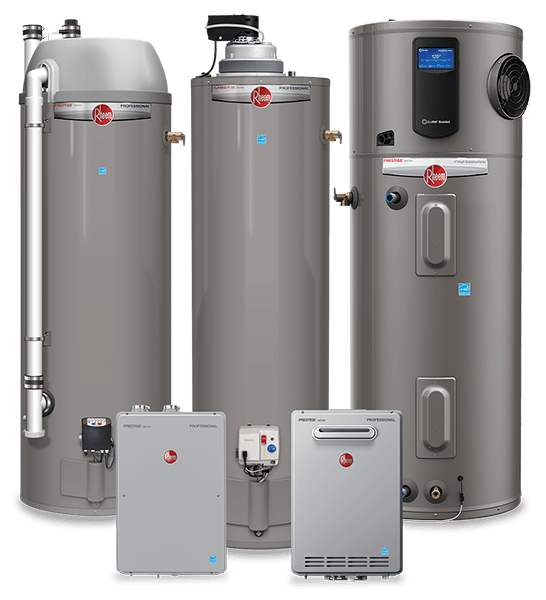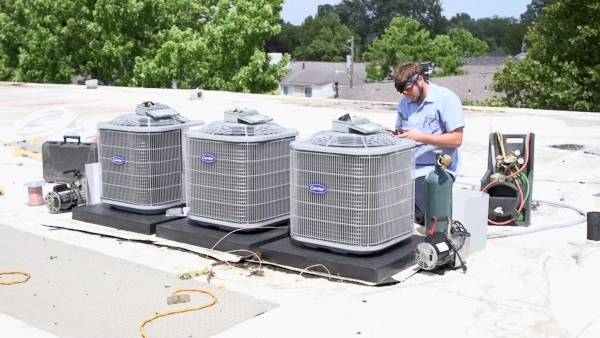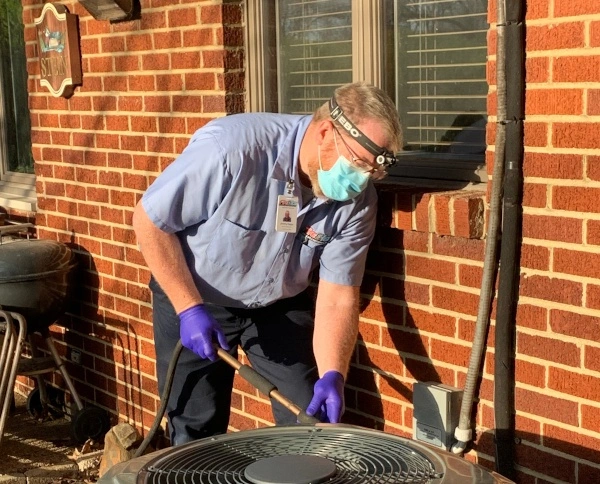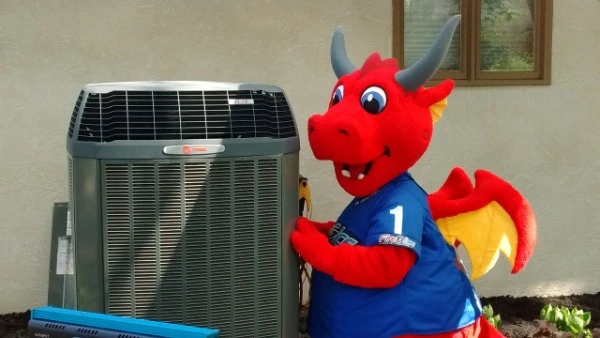


Author:
Revised:
August 10th, 2022
Smelling gas inside of your home can be a terrifying experience. And one you might not know how to handle. Unfortunately, figuring out the source of the issue can be rather tricky, and you can’t always leave your home for an extended period.
One of the sources of this gas smell can be your gas-powered furnace or heat pump. At Fire & Ice, we’ve helped numerous customers who have had this issue inside their homes and can answer any questions you might have.
If you smell gas, the first instinct you might want to do is panic, which is never a good idea in any potential emergency. So what can you do? Here are steps you can take right now if your home smells like gas.
What Should I Do If I Smell Gas in My Home?
If your home smells like gas, but there’s no apparent leak, here are steps you should follow:
- Ventilate the house by opening all windows and turning on ceiling fans
- After this, if the smell is persistent, evacuate your home
- Put out any materials that can create a flame or cause a spark, such as any open flames
- Get to a safe location far from your home
- Call your gas company’s emergency number and have someone sent out to determine whether there is a leak
- Call 9-1-1 to notify the police and fire department in your area
- DO NOT return to your home until a gas company professional arrives and has checked the site and deemed it safe to return
Once you are safe and it is determined that your home does not leak, several potential causes of the gas you were smelling could be identified.
Where Could the Smell Be Coming From?
The smell of gas could be coming from several sources, such as:
- A cracked heat exchanger
- Gas line damage
- Sulfur
- Bacteria in your hot water tank
- A sewage drain erupted near your home
Cracked Heat Exchanger
A heat exchanger is a thin metal shield between the combustion chamber and the blower that transfers heat from the furnace to the air ducts and then through your home. If this becomes cracked, it can be hazardous and cause gas and, worse, carbon monoxide to leak through your vents. This can cause carbon monoxide poisoning.
Noticeable cracks upon inspection, worn areas, strange smells, or water collecting around the furnace can all be signs of a cracked heat exchanger. If you have any of these, turn off your furnace and call a technician to prevent CO and gas from leaking into your home.
Gas Line Damage
The smell could also be caused by a gas line that is damaged outside your home. Your gas company should be responsible for this and inform you about any repairs.
Sulfur Creating a Smell
One often not considered source of a “gas-like” smell that can come from your home is bacteria inside of your sink or sewer system. It has a similar smell to the sulfur that is added to gas to give it an odor but is obviously less dangerous. If this is happening in your home, clean your sink with vinegar and baking soda. If the issue persists, contact a plumbing professional.
Gas Leaks Can Lead to Carbon Monoxide Poisoning
The most significant risk with a gas leak is carbon monoxide poisoning. Carbon Monoxide is a gas that is formed from the incomplete combustion of carbon. It is lighter than air and is released naturally during certain events in nature, such as a forest fire; it can also be released through processes that we as humans have created. Fumes from small engines, such as lawn mowers, cars and gas stoves, fireplaces, and furnaces all cause a carbon monoxide release.
This gas is odorless, tasteless, and invisible, giving it the name the “silent killer.” Exposure to this gas can be toxic and even deadly. Each year carbon monoxide poisoning kills more than 430 people nationally, according to the CDC. Approximately 50,000 people go to emergency rooms each year for accidental carbon monoxide poisoning.
Symptoms of Carbon Monoxide Poisoning
The most important signal of carbon monoxide poisoning is your body. If you educate yourself about the symptoms, they can be used as a guideline. According to the CDC, When you breathe in carbon monoxide, it displaces the oxygen in your blood. As the oxygen levels get dangerously low, there is damage to muscles, organs, and the brain.
- Headache
- Dizziness
- Nausea
- Vomiting
- Physical weakness
- Chest pain
- Confusion
- Unconsciousness
If you suspect carbon monoxide poisoning in someone else, move the victim into the fresh air and immediately call 9-1-1.
How Do Carbon Monoxide Leaks Factor In?
Carbon monoxide leaks can also be a result of the sources mentioned above, including your furnace. Carbon monoxide can leak from your furnace without your knowledge, which makes regular maintenance by a trained HVAC technician and paying attention to any smells and sounds inside your home even more critical.
At Fire & Ice, we also complete a carbon monoxide check of your furnace. Most companies do not offer this as it requires an additional $500 meter in order to complete.
We also recommend regular tune-ups to have this completed and checked for on a regular basis.
Pay Attention to Sounds, Sights, and Smells for Gas Leaks
Remember to pay attention to the signs that a gas leak may be occurring in your home; these include:
- A “rotten eggs” smell from the sulfur that is added to gas to create an odor
- Any signs of the destruction of soil or plant life from gas escaping
- A sharp hissing sound that could signal gas is escaping from a pipe
If you notice any of these signs and symptoms and can’t relate it to another issue, follow the steps mentioned earlier on what to do if you smell gas inside your home. Taking action could save your life and the life of your family from carbon monoxide poisoning, a potential fire, or an explosion.
Regular Maintenance on your Furnace and Heat Pump Can Help Prevent Issues
Even if your gas leak isn’t the result of a cracked heat exchanger or another issue with your gas-powered furnace or heat pump, it definitely could be and is an excellent reason to get maintenance on your system. Just like tune-ups and oil changes for your car, your HVAC system deserves the same level of care.
That’s why at Fire & Ice, we recommend a maintenance agreement to all our customers to help them make timely appointments and get ahead of issues before they become a hazard. Check out our maintenance agreement page for a complete list of services in our available maintenance agreements.
Below we talk about a few essential aspects of the plans and why they exemplify the desirable traits you want in a maintenance plan.
Priority Service
All our maintenance agreement customers get access to priority service when placing a call for tune-ups or service. Depending on your level, you can select which technician you have or pick a time on a Saturday.
Lifetime Workmanship Guarantee
Workmanship warranties are hard to come by in the HVAC industry. Ours states:
“We guarantee the following items for the lifetime of the equipment against defects in materials or workmanship from the date the system is installed:
- All ductwork we install
- All ductwork insulation we install
- Other items we install include sheet metal straps, clamps, fasteners, hangers, locks, drivers, drain piping, and fittings.
- All high-voltage electrical wiring, wire nuts, straps, ties, and connectors we install
- All refrigerant piping we install (does not include the cost to gain access to underground or other inaccessible piping)
- Refrigerant insulation we install
- All equipment pads, stands, jacks, and vibration elimination devices we install
Proper maintenance is what allows us to offer this unique guarantee. The only requirement to keep this protection in force for the lifetime of the equipment is to renew your annual maintenance program when due.”
And if you think these are empty words, I can again promise you that we’ve honored this agreement on those rare occasions when the work is done improperly. We pride ourselves on attention to detail, but no HVAC contractor is beyond fault. Having a guarantee like this is a protection for the customer.
Repair Warranty
Repair warranties for replacement parts sometimes last as little as 60 days from the manufacturer. With our three maintenance agreements extending this warranty to one, two, and three years, there’s peace of mind knowing that a repair wasn’t done just to collect a paycheck and get it running for a short while. If we aren’t confident the repair will last for years, we won’t do it, and you’re covered either way.
Save Money on System Costs
Air filters, evaporator and blower cleanings, and equipment tune-ups add up fast. Your maintenance agreement will ensure you have them on time and at a reduced cost, saving you both money up front and in the long run.
No Overtime Fees
If the job pays a contractor, you risk them doing a quick, poor job simply to rush to the next one. But if they’re paid hourly, a homeowner might worry about extended time. Protections like this are designed to hold a repair technician accountable, keep a company accountable, and standardize customer costs.
Don’t Wait to Prevent Emergencies
Staying on top of preventative maintenance within your home, even ones that can lead to significant issues, can be tricky. Give us a call if you have any additional questions. Also, if you live in the Columbus, Ohio area, check if we service your area using the zip code map below.
If you’re ready to take the next step, use the button below to schedule your free estimate.


